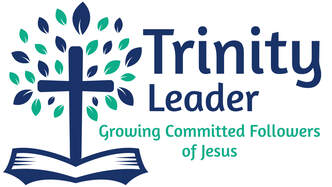 So much of what we do in the church revolves around tradition. There is an important sense of rootedness and continuity to be found within tradition. And yet, a very real danger exists in simply following tradition (traditionalism). We can lose sight of why we do the things we do. Shrove Tuesday is a prime example of this. Many know Shrove Tuesday simply as the day that we go to church and eat pancakes together (which is awesome!). There might be a vague recollection of some connection to Lent and/or Mardi Gras, with no real idea what that connection might be. I came across a brief history lesson (the full-text is here) today that is very insightful and importantly answers the question of why we celebrate with pancakes on Shrove Tuesday. Basically it dates back to a British tradition of families gathering together to use up rich foods from which you traditionally abstain and would subsequently go bad over the 40 days of Lent. The article goes on to explain the roots of the word Shrove (which is not commonly used anymore). Shrove Tuesday wasn’t just about cleaning out the kitchen. It was also about cleaning out the heart. Shrove is the past tense of shrive, which means to confess sins and to have sins absolved. Priests would ring shriving bells to call pancake-laden parishioners to church to confess their sins—perhaps starting with their gluttony! And so as you indulge yourself on pancakes, take some time to clean out your heart; confess your shortcomings, failures, and sins to our most merciful God. Take heart that as you have confessed your sins God has already granted your forgiveness through His Son, Jesus. As we prepare to embark on the Lenten journey to the cross but ultimately to the empty grave, may we have hearts that are clean! Image used under Creative Commons License. No changes made. Original photo can be found here.
0 Comments
 On Friday, the Supreme Court of Canada ruled in favour of Physician Assisted Death to mentally competent but suffering and "irremediable" patients, giving Parliament one year to enact legislation to conform to its ruling. An event like this necessitates that we reflect on our role as Christians and the Church within culture. Christians and the Church have a unique responsibility and right to engage with culture in a two-fold way: to critique culture and to offer a different way forward. The first important way that the Church engages culture is by critiquing it. While the temptation in critiquing society, government, or individuals is to focus on the negative we ought to first affirm those things which are positive (and every issue no matter how distressing has something which can be affirmed). There is also the responsibility to speak out against those things which are not so positive within society: speaking out against injustice and standing up for the voiceless. As we speak into culture, engaging society and individuals in a meaningful conversation we must offer a new and different way forward. It is one thing to simply discuss the issues but quite another to offer a different worldview to frame discussion and action. As we speak into culture, engaging society and individuals in a meaningful conversation we must offer a new and different way forward. That is where we as Christians and the Church have a different worldview to present: one based on life. We talk a lot about life, primarily eternal life with our God which is our hope, longing, and destiny. Too often this discussion of life is disconnected from our everyday experience of life. In John 10:10 Jesus says that He came “that they may have life and have it abundantly.” We are quick (rightfully so) to apply this to eternal life with Jesus but the promise of life abundant is for the here and now as well. Jesus came not just for a future life but for a rich, full, joyful life presently, one marked with hope for the future. And so it is good and important that we affirm and speak life. That is why we are here! Interestingly enough, both sides on the issue of Physician-Assisted Death appeal to the notion that life is precious. One side of the argument says, “Life is precious and so it should be valued to its natural end” while the other side argues, “life is too precious to endure pain/suffering.” While the issue clearly is about life, it is also about suffering. No one likes or wants to suffer. In fact, we often search out quick fixes to end any kind of suffering even if it is just a minor annoyance. As much as we try to avoid or get rid of suffering, it is still present. We are never told that we will have a life free of suffering. It is our cultural opinion that we have the privilege not to suffer. When we look to Scripture, we are reminded of the root of suffering: sin entering into the world as a result of humanity’s disobedience to God. Pain, brokenness, heart-ache, and death enter the world which becomes a place in need of hope. Many ask the question, ‘how can a good God allow suffering?’ There is no easy answer to that question, and no suitable answer if you or a loved one is suffering from a debilitating disease or is in chronic pain. The only solution that I have to suffering is Jesus. In Jesus, our God entered the world to endure pain and suffering. He died a gruesome and painful death. In His life, Jesus entered into humanity’s suffering and pain and by His death offers hope. Jesus enters into our suffering, giving us strength and encouragement. He calls us closer to our God who knows us, made us, and suffers with us. And so, what can we as Christians and the Church do as we stand for the sacredness of life, including life in the midst of suffering? We are to offer a different way forward: 1. Pray. Pray for God’s Kingdom to come powerfully bringing healing to sick, wholeness to the broken, and restoration to the outcast. Pray for God’s Kingdom to come and His will be done as earth as in heaven. 2. Advocate for life. Write politicians, your MP and MLA; the Premier and the Prime Minister. Encourage others to do so as well to stand up for the value of life even when there is minimal perceived value. 3. Get involved. It is one thing to speak against Physician-Assisted Death but another to put the words into action. The suffering need love, they need the hope that only Jesus can offer. Speak life into the suffering, hurting, pained, and broken. Support palliative care efforts which give dignity in the midst of suffering and death. Photo Attribution: Andrea Mantegna [Public domain or Public domain], via Wikimedia Commons
|
AuthorPastor J-M shares some occasional thoughts and musings on our life together as followers of Christ. The views are his own. Archives
October 2023
Categories
All
|
- Home
- About
-
Learning & Growing
-
Sermons
>
- 1 Samuel
- Lent
- Spiritual Conversation
- Advent
- 1 Timothy
- Single Messages
-
Older Sermons
>
- Judges
- Joshua
- Galatians
- Lamentations
- 1 Peter: Living Hope
- Acts
- What Does This Mean?
- Gospel Identity: Gospel Living
- Nehemiah
- Questions of Faith
- Proverbs
- Hebrews
- Sermon on the Mount
- 1 Thessalonians
- Psalm 23: Walking with the Lord
- I Believe: The Apostles' Creed and a Living Faith
- 1 Corinthians
- Difficult Questions
- Genesis: God's Endless Faithfulness
- The Lord's Prayer
- Mark
- Genesis
- Bible Studies >
- Kids
- Blog
-
Sermons
>
- Worship Videos & Resources
- Contact
- Home
- About
-
Learning & Growing
-
Sermons
>
- 1 Samuel
- Lent
- Spiritual Conversation
- Advent
- 1 Timothy
- Single Messages
-
Older Sermons
>
- Judges
- Joshua
- Galatians
- Lamentations
- 1 Peter: Living Hope
- Acts
- What Does This Mean?
- Gospel Identity: Gospel Living
- Nehemiah
- Questions of Faith
- Proverbs
- Hebrews
- Sermon on the Mount
- 1 Thessalonians
- Psalm 23: Walking with the Lord
- I Believe: The Apostles' Creed and a Living Faith
- 1 Corinthians
- Difficult Questions
- Genesis: God's Endless Faithfulness
- The Lord's Prayer
- Mark
- Genesis
- Bible Studies >
- Kids
- Blog
-
Sermons
>
- Worship Videos & Resources
- Contact

 RSS Feed
RSS Feed